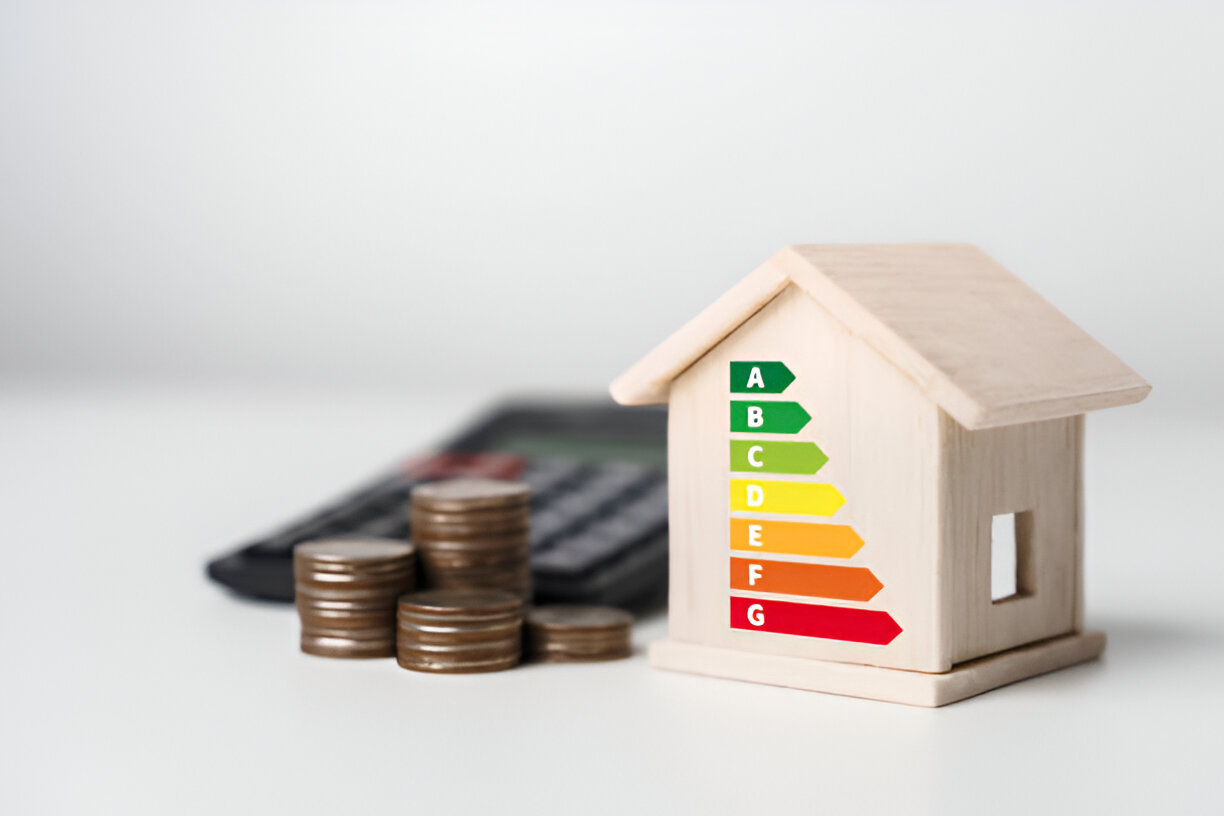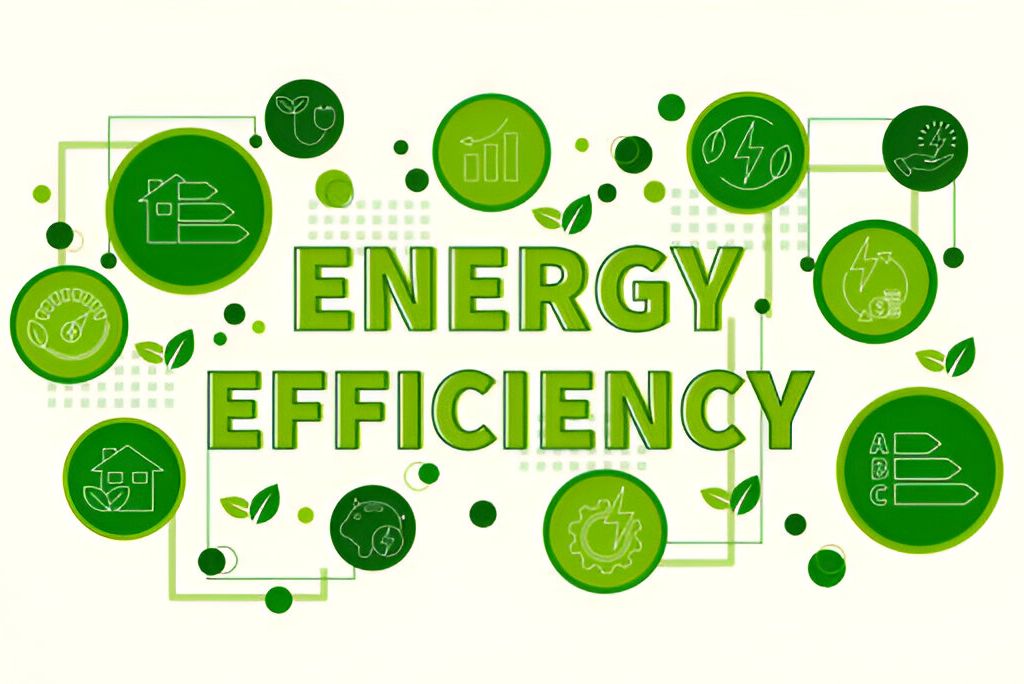
The Energy Performance Certificate (EPC) serves as a crucial instrument in assessing the energy efficiency of residential and commercial properties. By employing the Standard Assessment Procedure (SAP), it systematically evaluates key elements such as insulation, heating, and hot water systems, providing a comprehensive energy efficiency rating from A (most efficient) to G (least efficient). Let’s explore What Is EPC Calculated.
This calculation not only influences property value and potential energy savings but also shapes legislative compliance and environmental policy. As the importance of energy efficiency grows in response to environmental concerns, understanding the intricacies of how EPCs are calculated becomes increasingly relevant for property owners, buyers, and policymakers alike. What remains to be seen is how these assessments will adapt to the evolving demands of energy sustainability.
Understanding EPC Basics
An Energy Performance Certificate (EPC) is an essential document that evaluates the energy efficiency of a property in the UK, categorizing it from A (most efficient) to G (least efficient). This certificate not only provides a detailed snapshot of the energy performance of residential or commercial buildings but also includes specific information on the property’s energy use and typical energy costs.

These details are pivotal for owners, tenants, and potential buyers to understand the energy demands associated with the property.
EPCs play a critical role in the UK’s commitment to improving energy efficiency and reducing greenhouse gas emissions. By providing a clear rating system, the EPC informs decisions related to real estate investments, energy improvements, and policy making.
Moreover, the recommendations included in the EPC report guide property owners on how to enhance their building’s energy efficiency, potentially leading to significant savings on energy bills and improved market value of the property.
Legally, an EPC is mandatory for all properties that are built, sold, or rented. The certificate must be obtained from accredited assessors who are trained and registered to ensure compliance with national standards.
This ensures the integrity and accuracy of the information provided, which is crucial for effective energy management and conservation strategies.
Calculation Methodology
Building on the foundational understanding of Energy Performance Certificates, we now explore the specific methodologies employed in their calculation. The core methodology used is the Standard Assessment Procedure (SAP) for residential properties, which includes detailed data inputs across various building characteristics. This involves a comprehensive collection of data on the property’s dimensions, construction type, insulation levels, heating systems, and renewable energy technologies.

Energy assessors input this data into specialized software, which calculates the energy efficiency based on standardized government algorithms. This ensures consistency and comparability across assessments. The software outputs an Energy Efficiency Rating, which classifies the property on a scale from A (most efficient) to G (least efficient).
To convey the depth of the methodology, consider the following table which outlines key aspects of the data collection process:
| Data Type | Description | Impact on Rating |
|---|---|---|
| Building Fabric | Materials and construction quality | Directly affects heat retention |
| Heating Systems | Type, efficiency, and control systems | Influences energy consumption |
| Renewable Energy | Presence of solar, wind, or biomass | Can significantly improve the rating |
| Ventilation | Natural and mechanical systems | Impacts air quality and heat loss |
This structured approach to data collection and analysis ensures that the EPC provides a reliable, actionable reflection of a property’s energy performance.
Influential Factors
Delving into the myriad factors that influence Energy Performance Certificate (EPC) ratings, it becomes clear that each element plays a critical role in determining the overall energy efficiency of a property.
The thermal envelope of the building, which includes the walls, roof, windows, and doors, significantly affects the heating and cooling demands. The type and thickness of insulation used within these components directly influence the thermal resistance, thereby altering the energy consumption patterns.
Additionally, the efficiency of the heating, ventilation, and air conditioning (HVAC) systems is paramount. Older systems tend to be less efficient and can dramatically decrease a property’s EPC rating. Conversely, modern systems that incorporate advanced technologies like heat recovery and variable speed drives can enhance energy performance.
Another crucial factor is the orientation and design of the building. Properties designed to maximize natural light and heat from the sun during colder months can reduce reliance on artificial heating. Conversely, features that minimize overheating during warmer periods can decrease cooling requirements.
Lastly, the integration of renewable energy sources, such as solar panels or wind turbines, contributes positively to the EPC rating by reducing dependency on non-renewable energy sources.
Each of these factors must be meticulously analyzed to accurately assess a property’s energy efficiency.
Assessor’s Role
In evaluating a property’s energy performance, accredited assessors play a pivotal role in the generation of Energy Performance Certificates (EPC).

These professionals are not just data collectors; they analyze and synthesize building information to offer a comprehensive view of a property’s energy efficiency. Their technical expertise and meticulous attention to detail ensure that each assessment is both accurate and compliant with current standards.
Here are three vital contributions of assessors that significantly impact the emotional and financial well-being of property owners:
- Trust and Confidence: Assessors provide property owners with the confidence that their homes or commercial spaces comply with legal energy efficiency standards, which can significantly affect property value and marketability.
- Financial Savings: Through detailed recommendations for energy improvements, assessors guide property owners on how to enhance their building’s energy performance, potentially leading to substantial savings on utility bills.
- Environmental Impact: By identifying ways to reduce energy consumption, assessors contribute to broader environmental efforts, helping property owners reduce their carbon footprint and combat climate change.
These roles underline the assessor’s importance not just in fulfilling regulatory requirements but in fostering a sustainable future and providing peace of mind to property stakeholders.
Booking EPC Assessments
Arranging an Energy Performance Certificate (EPC) assessment has become a streamlined and user-friendly process for property owners. The booking procedure emphasizes accessibility and efficiency, catering to the needs of a diverse range of property types from residential to commercial.

Potential clients can initiate the process through an online platform or via direct contact with accredited assessment providers, who offer detailed information on service scope, pricing, and expected timelines.
The technical elements of the booking process include selecting a qualified assessor who matches the specific requirements of the property in question. This selection is crucial, as the assessor’s expertise directly influences the accuracy of the EPC rating.
The assessors are typically vetted based on their certification, experience, and ability to perform thorough evaluations that conform to the Standard Assessment Procedure (SAP) or Reduced Data Standard Assessment Procedure (RDSAP).
Once an assessor is selected, the property owner schedules an appointment at a convenient time. During the assessment, detailed data is collected concerning the property’s construction, insulation, heating systems, and any renewable energy installations.
This data is critical in calculating the property’s energy efficiency, ultimately influencing the EPC rating, which plays a pivotal role in real estate transactions and energy management strategies.
Conclusion
In conclusion, the Energy Performance Certificate (EPC) is a critical tool that quantifies a property’s energy efficiency through a comprehensive evaluation based on the Standard Assessment Procedure (SAP). This methodology ensures a consistent and precise assessment of energy consumption and potential costs associated with different properties. By considering various structural and system factors, the EPC provides valuable insights for energy management and real estate decisions, fostering environmental awareness and encouraging energy-saving measures.
About the Author: LandlordCertificate
Related Posts
Get Social
Recent Posts
- EICR London Fault Codes Explained: What C1, C2, and C3 Really Mean for Landlords
- Choosing the Right Consumer Unit for Fuse Box Installation London in Properties
- Electrical Diagnostic London: How Professional Testing Keeps Your Property Safe and Compliant
- Asbestos Management Survey London: Update Your Property Records
- Gas Safety Certificate London: Why Regular Checks Save Money Long-Term













